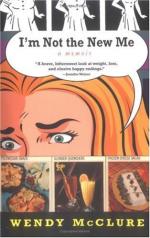“‘I was a young fellow,’ Mr. Redmond Grigsby says, ’and took a long time to get to the speaking. When I got to the out-skirts of the crowd, Mr. Lincoln saw me, and called out: “If that isn’t Red Grigsby, then I’m a ghost.” He then came through the crowd and met me. We shook hands and talked a little. His speech was good, and was talked about for a long while around in this section. The last words of his speech at the Carter schoolhouse were: ’My fellow-citizens, I may not live to see it, but give us protective tariff, and we will have the greatest country on the globe.’”
“After the speaking was over, Mr. Josiah Crawford invited Abraham Lincoln and John W. Lamar to go home with him. As they rode along, Mr. Lincoln talked over olden times. He asked about a saw pit in which he had worked when a young boy. Mr. Crawford said it was still in existence, and that he would drive around near it. The three men, Lincoln, Crawford, and Lamar, went up into the woods where the old pit was. It had partly fallen down; the northwest corner, where Lincoln used to stand when working, was propped up by a large forked stick against a tree. Mr. Lincoln said: ’This looks more natural than I thought it would after so many years since I worked here.’ During the time spent at Mr. Crawford’s home, Mr. Lincoln went around inspecting everything."[6]
[Footnote 6: Lincoln in Indiana in 1844. Unpublished MS. by Anna O’Flynn.]
So vivid were the memories which this visit to Gentryville aroused, so deep were Lincoln’s emotions, that he even attempted to express them in verse.
[Illustration: THE REV. PETER CARTWRIGHT.
The Rev. Peter Cartwright, the most famous itinerant preacher of the pioneer era, was born in Amherst County, Virginia, on James River, September 1, 1785. His father was a Revolutionary soldier, and soon after peace was declared the family moved to the wildest region of Kentucky. The migrating party consisted of two hundred families, guarded by an armed escort of one hundred men. Peter was a wild boy; but in his sixteenth year he was persuaded by his mother to join the Methodist Church. He at once displayed a wonderful talent for exhorting, and at the age of seventeen he became a licensed exhorter. A year later he became a regular travelling preacher. His reputation soon spread over Kentucky and Ohio. He hated slavery, and in 1823, to get into a free State, he and his wife (he had married Frances Gaines in 1808) and their seven children removed to Illinois. They settled in the Sangamon valley, near Springfield. For the next forty years he travelled over the State, most of the time on horseback, preaching the gospel in his unique and rugged fashion. His district was at first so large (extending from Kaskaskia to Galena) that he was unable to traverse the whole of it in the same year. He was elected to the legislature in 1828 and again in 1832; Lincoln, in the latter year, being an opposing candidate. In 1846 he




